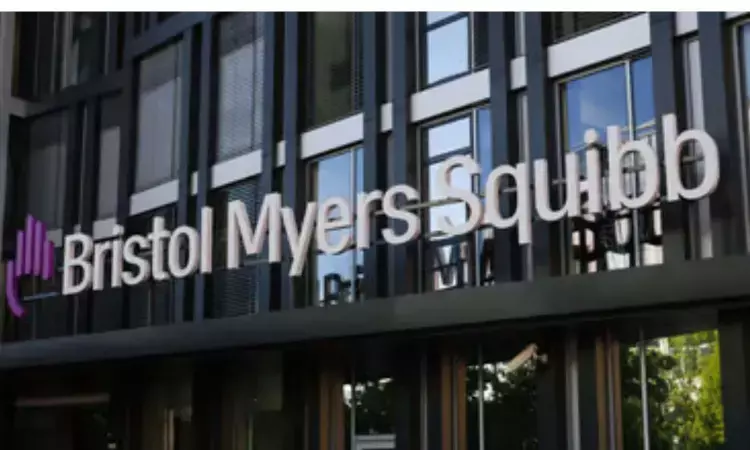- Home
- Medical news & Guidelines
- Anesthesiology
- Cardiology and CTVS
- Critical Care
- Dentistry
- Dermatology
- Diabetes and Endocrinology
- ENT
- Gastroenterology
- Medicine
- Nephrology
- Neurology
- Obstretics-Gynaecology
- Oncology
- Ophthalmology
- Orthopaedics
- Pediatrics-Neonatology
- Psychiatry
- Pulmonology
- Radiology
- Surgery
- Urology
- Laboratory Medicine
- Diet
- Nursing
- Paramedical
- Physiotherapy
- Health news
- Fact Check
- Bone Health Fact Check
- Brain Health Fact Check
- Cancer Related Fact Check
- Child Care Fact Check
- Dental and oral health fact check
- Diabetes and metabolic health fact check
- Diet and Nutrition Fact Check
- Eye and ENT Care Fact Check
- Fitness fact check
- Gut health fact check
- Heart health fact check
- Kidney health fact check
- Medical education fact check
- Men's health fact check
- Respiratory fact check
- Skin and hair care fact check
- Vaccine and Immunization fact check
- Women's health fact check
- AYUSH
- State News
- Andaman and Nicobar Islands
- Andhra Pradesh
- Arunachal Pradesh
- Assam
- Bihar
- Chandigarh
- Chattisgarh
- Dadra and Nagar Haveli
- Daman and Diu
- Delhi
- Goa
- Gujarat
- Haryana
- Himachal Pradesh
- Jammu & Kashmir
- Jharkhand
- Karnataka
- Kerala
- Ladakh
- Lakshadweep
- Madhya Pradesh
- Maharashtra
- Manipur
- Meghalaya
- Mizoram
- Nagaland
- Odisha
- Puducherry
- Punjab
- Rajasthan
- Sikkim
- Tamil Nadu
- Telangana
- Tripura
- Uttar Pradesh
- Uttrakhand
- West Bengal
- Medical Education
- Industry
Bristol Myers Squibb bags European Commission nod for Subcutaneous formulation of Opdivo across multiple solid tumor indications

Princeton: Bristol Myers Squibb has received approval from the European Commission (EC) for a new Opdivo (nivolumab) formulation associated with a new route of administration (subcutaneous use [SC]), a new pharmaceutical form (solution for injection) and a new strength (600 mg/vial).
Opdivo SC, or nivolumab for subcutaneous use co-formulated with recombinant human hyaluronidase (rHuPH20), has been approved for use across multiple adult solid tumors as monotherapy, monotherapy maintenance following completion of intravenous nivolumab plus Yervoy (ipilimumab) combination therapy, or in combination with chemotherapy or cabozantinib.
“The EC’s decision to approve Opdivo SC ushers in a new era of cancer care in which we are able to deliver a 3- to 5-minute injection of a treatment that has shown consistent efficacy and comparable safety to intravenous Opdivo, which changed the cancer treatment landscape over a decade ago,” said Dana Walker, M.D., M.S.C.E., Opdivo global program lead, Bristol Myers Squibb. “BMS is committed to advancing medicines that help improve the patient experience, and with the approval of Opdivo SC in the European Union, we are delivering on this goal.”
The positive EC decision is based on results from the CheckMate -67T clinical trial and additional data that demonstrated comparable pharmacokinetics (PK) and safety profiles between Opdivo SC and IV Opdivo. The CheckMate –67T clinical trial showed noninferiority of PK primary endpoints, Cavgd28 (time-averaged Opdivo serum concentration over 28 days) and Cminss (trough serum concentration at steady state), with Opdivo SC vs. IV Opdivo in adult patients with advanced or metastatic clear cell renal cell carcinoma (ccRCC) who had received no more than two prior lines of systemic therapy but had not received prior immuno-oncology therapy. The geometric mean ratio (GMR) for Cavgd28 was 2.10 (90% CI: 2.00-2.20) and the GMR for Cminss was 1.77 (90% CI: 1.63-1.93). Additionally, as a key powered secondary endpoint, the objective response rate (ORR) in the Opdivo SC arm (n=248) was 24% (95% CI: 19-30), compared with 18% (95% CI: 14-24) in the IV Opdivo arm (n=247), showing that Opdivo SC has similar efficacy compared to IV Opdivo. The safety profile of Opdivo SC remained consistent with the IV formulation.
The pharmacokinetics, efficacy and safety results from CheckMate -67T were presented at the 2024 American Society of Clinical Oncology (ASCO) Genitourinary Cancers Symposium. Additional analyses were presented at the 2024 ASCO Annual Meeting, the 2024 European Society for Medical Oncology (ESMO) Congress, and published in the Annals of Oncology.
“As the first and only subcutaneously administered PD-1 inhibitor approved in the European Union, subcutaneous nivolumab is helping to transform the treatment landscape for eligible patients by giving them a new way to potentially receive the same benefits of the IV formulation of nivolumab, in a more convenient manner,” said Laurence Albiges, M.D., Ph.D., a professor of medical oncology at Université Paris-Saclay, and head of the Department of Oncology at Gustave Roussy, Villejuif, France. “This approval provides eligible patients and their doctors a new way to tailor treatment plans for each individual’s needs and to improve the efficiency with which nivolumab can be administered from a patient perspective as well as in the organization of our healthcare resources.”
The approval by the EC is valid in all 27 member states of the European Union (EU), as well as Iceland, Liechtenstein and Norway.
On December 27, 2024, subcutaneous nivolumab and hyaluronidase-nvhy, marketed under the brand name Opdivo Qvantig, was approved by the U.S. Food and Drug Administration (FDA).
Ruchika Sharma joined Medical Dialogue as an Correspondent for the Business Section in 2019. She covers all the updates in the Pharmaceutical field, Policy, Insurance, Business Healthcare, Medical News, Health News, Pharma News, Healthcare and Investment. She has completed her B.Com from Delhi University and then pursued postgraduation in M.Com. She can be contacted at editorial@medicaldialogues.in Contact no. 011-43720751
Dr Kamal Kant Kohli-MBBS, DTCD- a chest specialist with more than 30 years of practice and a flair for writing clinical articles, Dr Kamal Kant Kohli joined Medical Dialogues as a Chief Editor of Medical News. Besides writing articles, as an editor, he proofreads and verifies all the medical content published on Medical Dialogues including those coming from journals, studies,medical conferences,guidelines etc. Email: drkohli@medicaldialogues.in. Contact no. 011-43720751


